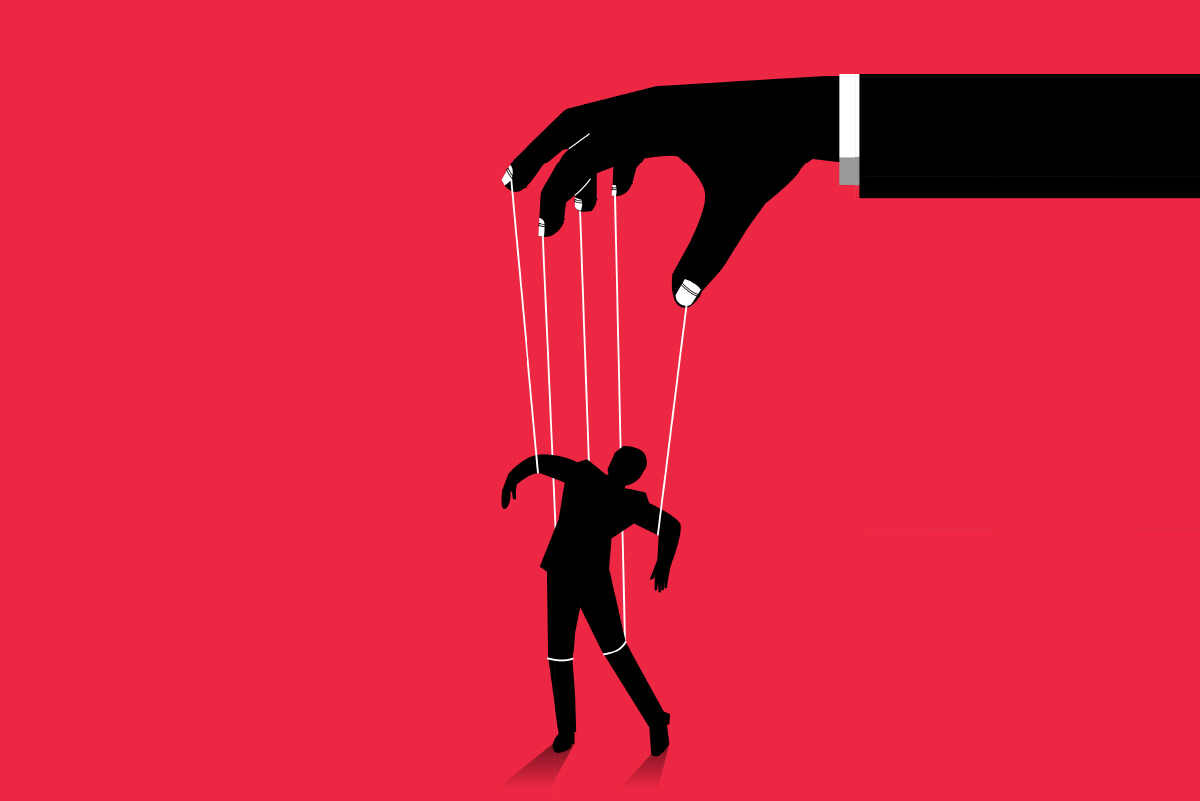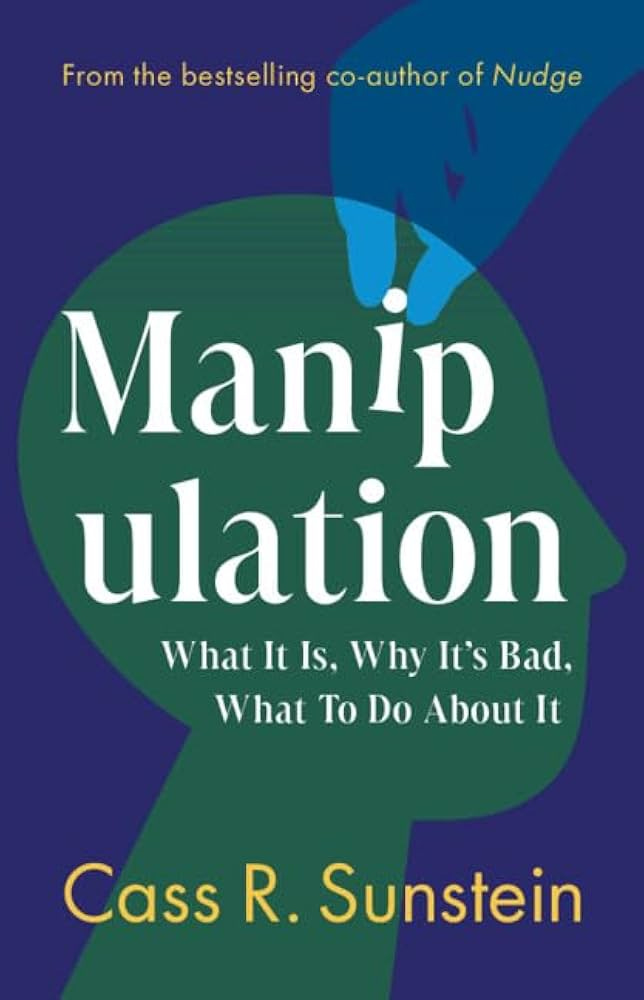When Is Manipulation a Crime?
Companies Have Weaponized the Nudge
Amsterdam’s Schiphol Airport features flawless signage and retail so good that locals go there to shop and eat. But what impressed me wasn’t the restaurants or stores—it was the urinals. Years ago, I spotted a housefly dozing innocently on the ceramic and smiled when I scored a direct hit. When the bug did not flinch, I realized the joke was on me. The ceramic fly served to urge men to focus their efforts. The creative fellow who attached an insect to the pissoirs of Schiphol claims that it cuts the mopping up in half.
Legal scholar Cass Sunstein and behavioral economist Richard Thaler made these ceramic flies famous as an example of a "nudge"—a gentle intervention that encourages better decisions while preserving freedom of choice. This exemplifies their philosophy of "libertarian paternalism" that respects individual autonomy while guiding choices rather than dictating them.
The philosophy contains tensions, if not outright contradictions. After all, “libertarian” is laissez-faire while “paternalism” is a call for state protection. But both authors have thrived on it.1 Thaler won the 2017 Nobel Prize in Economics for making choice architecture a field of behavioral economics. Sunstein ran OIRA during the Obama years and remains one of the world’s most prolific and respected legal scholars.2
From Nudge to Manipulation
Now Sunstein outlines his new target in the title of his new book: Manipulation. It is a logical sequel to Nudge, now that companies have weaponized the choice architecture underlying nudges and behavioral economics.
Sunstein argues that Americans need a legal right not to be manipulated. Today, businesses rely less on outright lies and more on subtle psychological tricks—such as default enrollments, "drip pricing," emotional appeals, and hidden terms—that extract value from people's time, money, and attention without explicit consent. These are nudges that ignore the part about being “welfare-enhancing”.
The techniques are well-known to students of behavioral economics. Companies exploit "present bias" (preferring immediate rewards), "loss aversion" (fear of missing out), and "status quo bias" (the power of defaults). Unlike fraud, this manipulation often leaves consumers unaware they're being manipulated, undermining their autonomy in ways that can be pervasive and profound.
Defining manipulation as a rights violation raises obvious questions: What exactly counts as manipulation? When does a nudge become coercion? How much paternalist protection do we want from forces that encourage both good and bad choices?
The critique writes itself: Isn't all persuasion a little manipulative? Where do we draw the line between clever marketing and exploitation? A "right not to be manipulated" risks being so broad that it chills everyday business practices.
Sunstein concedes the difficulty but insists that legal solutions can target egregious cases. For example, the Department of Transportation has issued new rules requiring airlines to disclose baggage and cancellation fees upfront. This is an effort to reduce "drip pricing"—luring customers with attractive base prices before revealing actual costs. Similarly, the FCC's broadband "nutrition labels" now let consumers compare plans apples-to-apples. Shouldn’t a standard like this apply to health care plans?
This isn't revolutionary—it's disclosure and transparency. But it represents a shift: treating manipulation not just as bad manners but as something approaching fraud.
Sunstein’s project gets trickier when it meets the digital economy, where the battlefield is your phone screen, not airport urinals. Companies architect manipulation into their platforms: infinite scroll features designed to hook you, algorithms that traffic in outrage, "confirmshaming" pop-ups that guilt you into staying subscribed, and default settings that maximize data collection.
Here, Sunstein advocates greater scrutiny—transparency reports on dark patterns, requirements that exits be as easy as entries, and audits of manipulative algorithmic designs. Think behavioral consumer protection: not banning persuasion, but preventing it from crossing into exploitation.
But the line remains fuzzy. Is autoplay manipulative or convenient? Is one-click shopping efficient or a trick to bypass reflection? Is the retweet button free speech or the feature that lets algorithms amplify our most primitive emotions? The digital economy blurs the distinction between helpful features and exploitative ones.
Two Visions of Markets
This tension reflects a deeper philosophical divide about the purpose of markets. The traditional view holds that persuasion is an inevitable feature of economic competition. So caveat emptor - buyer beware. If you don’t like a company’s manipulative tactics, shop elsewhere, and hope that competition will discipline behavior that most customers find antisocial. The Sunstein vision says: persuasion is inevitable, but specific manipulative tactics corrode autonomy so profoundly that they warrant legal intervention.
The tension is real. Regulation can save consumers from unfair practices, but it can also make markets less innovative and more bureaucratic. Consider the EU's cookie popups—well-intentioned privacy protections that now irritate every website visitor.
Still, Sunstein is onto something. We live in a golden age of frictionless extraction, where companies deploy armies of behavioral scientists to craft interfaces that keep us scrolling, spending, and subscribing. Calling this mere "persuasion" misses the point.
I'm less sold on a sweeping "right not to be manipulated." Rights are blunt instruments, and this one risks being as vague as a "right not to be annoyed." What we need are targeted rules: ban hidden fees, mandate transparent disclosures, and crack down on dark patterns. Repeal Section 230 and hold social media companies liable for content that their algorithms promote. These are surgical strikes, not constitutional amendments.
In the end, Sunstein’s real contribution may be less legal theory and more the framing. He’s naming the problem. Schiphol’s ceramic fly worked because it nudged people toward cleaner choices without trickery. The digital economy often does the opposite: it hides costs, buries cancel buttons, and designs defaults to serve companies, not people. Sunstein may overreach with a sweeping ‘right not to be manipulated,’ but he’s right that manipulation deserves a name—and a fight.
Coda
In which, at the end, the great Leonard Cohen reveals the secret of life’s eternal mysteries…
Indeed, they published a memorable paper entitled “Libertarian Paternalism is Not an Oxymoron”, which argues that “Equipped with an understanding of behavioral findings of bounded rationality and bounded self-control, libertarian paternalists should attempt to steer people’s choices in welfare-promoting directions without eliminating freedom of choice.”
OIRA is the Office of Information and Regulatory Affairs, the United States Government's central authority for the review of Executive Branch regulation and information collection. A 2023 Harvard Law School article credits Sunstein with writing, co-writing, or editing 70 books on almost every legal topic imaginable. Google Scholar claims that he has been cited nearly a quarter of a million times and has authored or co-authored a stunning 1,889 articles, including translations and those written for popular publications.




